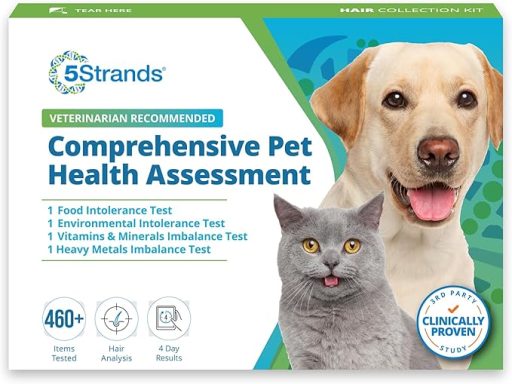Dog Allergies & Treatment: A Comprehensive Guide for Pet Parents
As devoted pet parents, we all want our fur babies to live their happiest, healthiest lives. However, just like humans, dogs can suffer from allergies, leading to discomfort and affecting their overall well-being. Understanding the symptoms, common causes, and effective treatment options is crucial for providing the best holistic pet wellness for your beloved canine companion.
Recognizing Dog Allergy Symptoms
Dog allergies often manifest as itchy skin, known medically as pruritus, which can be localized or generalized. Key symptoms to watch for include:
- Excessive licking, scratching, chewing, or gnawing, especially of the paws, ears, or rear end.
- Redness, inflammation, or crusts on the skin.
- Hair loss or saliva staining on the fur.
- Thickened or darkened skin (often referred to as "elephant skin").
- Odor coming from the skin or ears, often due to secondary infections.
- Frequent ear infections or head shaking.
- Watery eyes, runny nose, sneezing, or reverse sneezing (less common, but possible).
- Gastrointestinal issues like vomiting or diarrhea (especially with food allergies).
- If you observe any of these allergy symptoms, it's essential to consult your veterinarian promptly for an accurate diagnosis and treatment plan.
Dog Allergies & Treatment: A Comprehensive Guide for Pet Parents
Tests 315+ raw pet food ingredients
Tests 40+ common items and minerals found in your pets food and environment
Natural & Home-Based Support
Effective Dog Allergy Treatments
- Omega-3 Fatty Acid Supplements: Fish oil (EPA/DHA) helps support a healthy skin barrier and reduces inflammation, beneficial for overall skin health and immune system balance.
- Regular Baths with Hypoallergenic Shampoo: Frequent bathing helps wash away environmental allergens from your dog's coat and soothes irritated skin. Oatmeal-based shampoos are particularly soothing.
- Paw Wipes/Cleaning: Wiping your dog's paws and coat after outdoor excursions can remove pollen and other allergens before they enter the home.
- Quercetin: Often called "Nature's Benadryl," this natural antihistamine (found in berries, apples, or as a supplement) can help reduce histamine response.
- Coconut Oil (Topical): Can be applied to itchy spots for moisturizing and its antibacterial/anti-inflammatory properties.
- Probiotics & Improved Nutrition: A balanced, high-quality diet and probiotics can support gut health, which is closely linked to immune function and can impact allergy relief.
- Environmental Control: Regular vacuuming, washing pet bedding, using air purifiers, and limiting outdoor exposure during high pollen counts can reduce indoor allergens.
Ingredients
Anchovy oil, sardine oil, d-alpha tocopherol (a preservative).
Managing dog allergies requires patience and a partnership with your veterinarian. By understanding the causes and available treatments, you can significantly improve your fur baby's quality of life, ensuring they remain a happy, healthy, and thriving pet for years to come.



